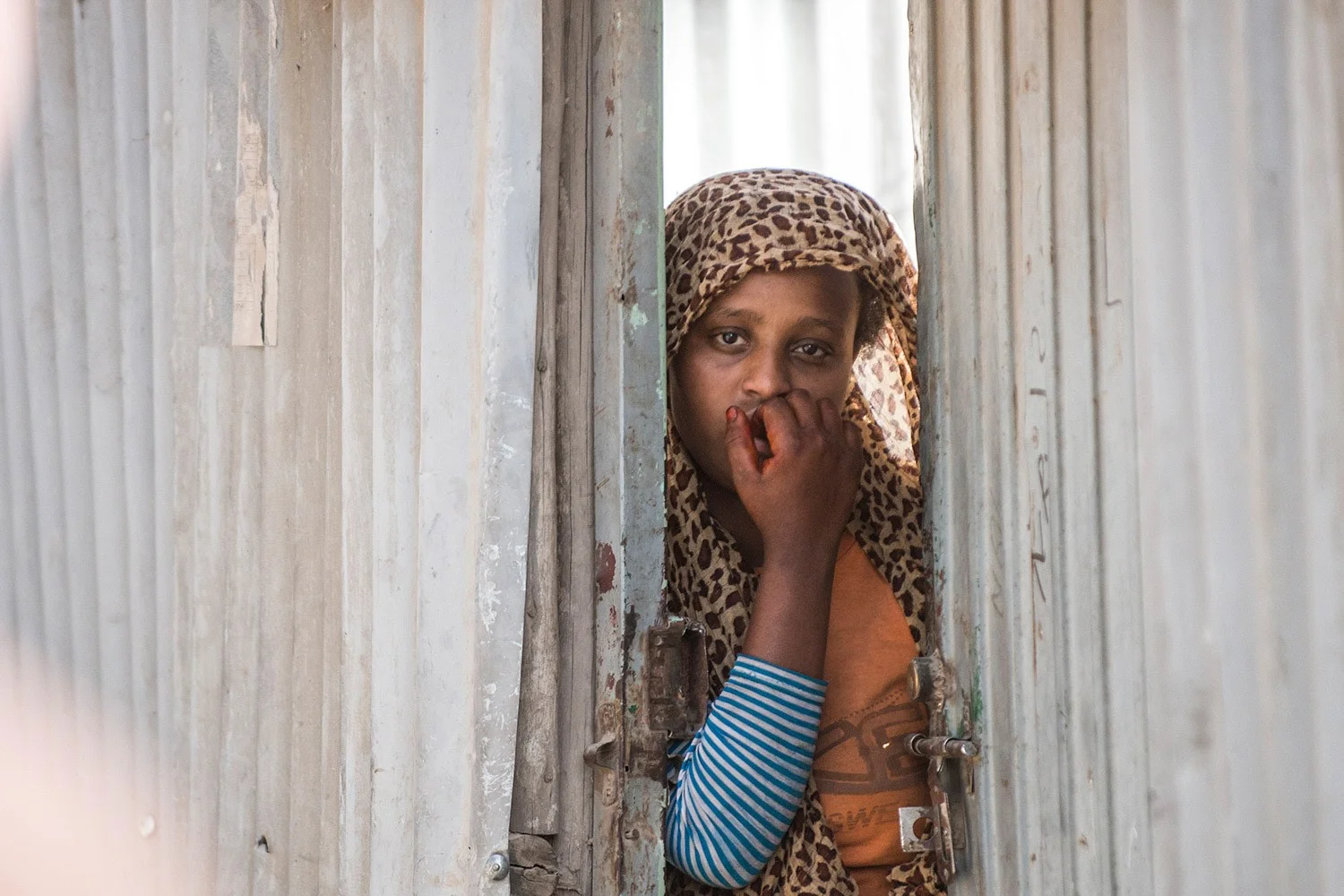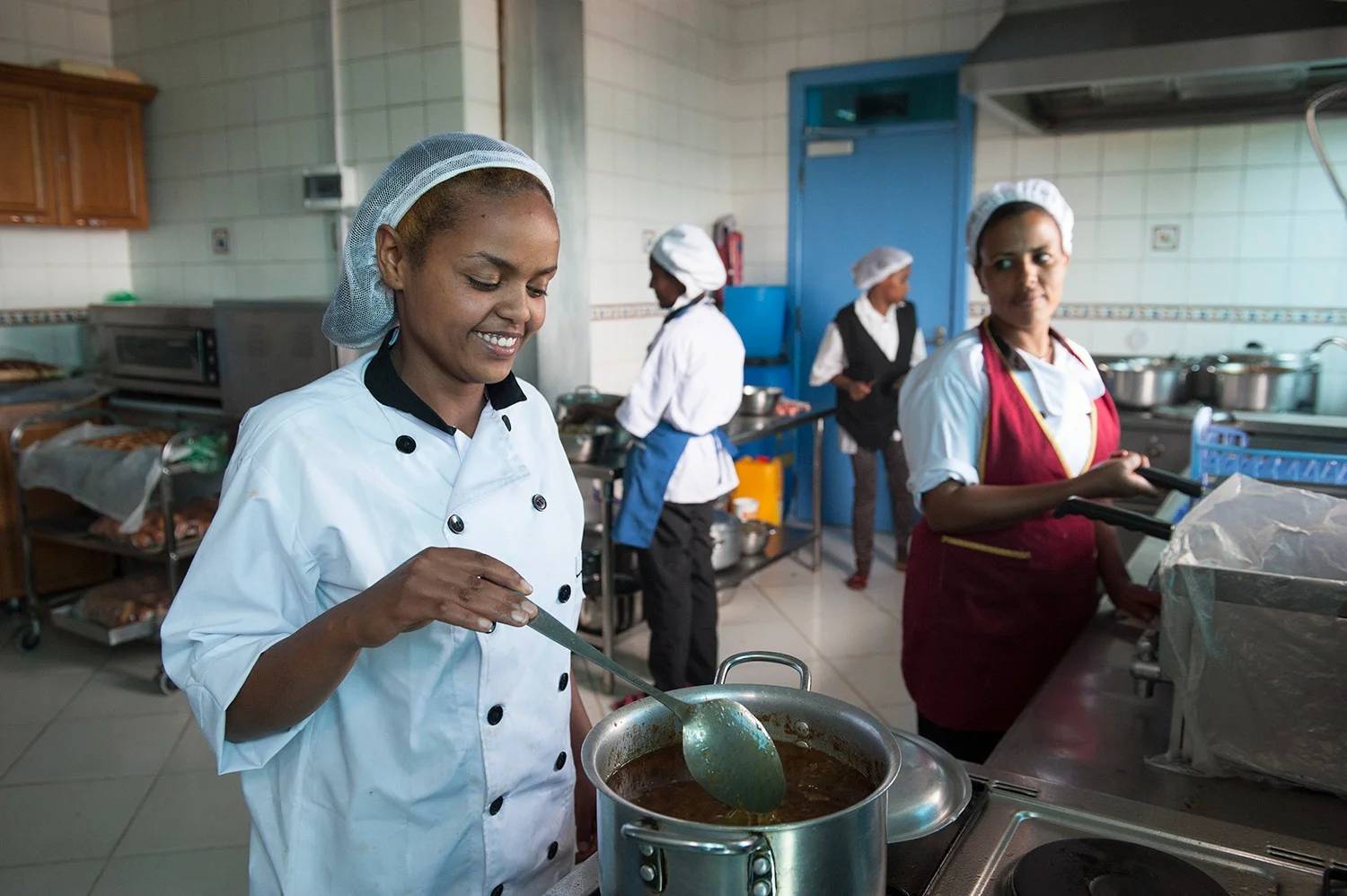Initial situation
The population in Ethiopia is growing rapidly and with it the cities, because many young people are moving from overpopulated villages to the cities in the hope of making their fortune there. But without training, all they have to do is do odd jobs for starvation wages. The hardship is taking its toll on families. Many relationships fail. That's why more and more poor women find themselves in an almost hopeless situation as single mothers: with children and no education, they have no chance of ever escaping poverty without outside help.
In order to feed their children, some women slip into poverty-stricken prostitution. Other mothers leave their children with relatives to travel illegally to Arab states and work as housemaids there. They suffer from separation from their children and often from abuse by their employers. The poorest women in Ethiopia's cities therefore urgently need opportunities to stay in their homeland and offer their children a decent life: they need training that will make them sought-after professionals.

Our help for self-development
Support for young women and single mothers
The women dance, clap, trill with joy: This scene is repeated every six months in the Ethiopian capital Addis Ababa, when between 90 and 130 graduates celebrate the successful completion of their training as cooks and housekeepers.
The women take part in the training of Menschen für Menschen for six months. The diploma they receive is a kind of life insurance for them. Without training, they have had a very difficult time finding a job. Many made a living as washerwomen, day laborers in construction and as occasional prostitutes. Like Jamila Bedu, 44. After her husband left her and their three children, she saw no other option: “I drugged myself with alcohol and khat in order to endure life and be able to do this work.”
Others traveled legally or with the help of smugglers to Arab countries as guest workers to support their children who stayed behind with relatives in Ethiopia. “Many of us went to Saudi Arabia, but they lost more than they gained, even their pride,” said graduate Megdes Fesseha in her speech to the ceremony at the recent farewell. “They came back without hope, like all of us. It was only through our training that we regained our confidence. In the future we will be able to take care of ourselves. And no mother has to leave her family anymore.”
The graduates are sought-after specialists in hotels, canteens and private households. 60 percent of them have usually already found a job at the end of their training. A quarter of women would generally prefer to become self-employed, for example baking samosas on the street or producing and selling spice mixtures. But everyone is able to offer their children a dignified life in the future through their own efforts.
